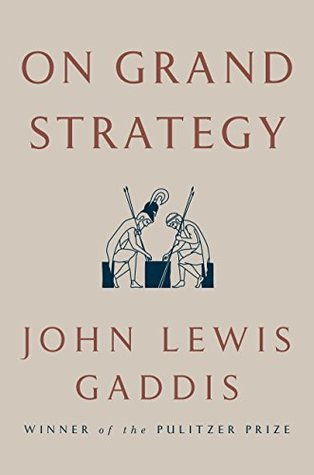More on this book
Community
Kindle Notes & Highlights
Which is what grand strategy is meant to prevent. I’ll define that term, for the purposes of this book, as the alignment of potentially unlimited aspirations with necessarily limited capabilities.
Thucydides grimly observes, war “brings most men’s character to a level with their fortunes.”
For the practice of principles must precede their derivation, articulation, and institutionalization.
As Machiavelli’s finest translator has put it: “[J]ustice is no more reasonable than what a person’s prudence tells him he must acquire for himself, or must submit to, because men cannot afford justice in any sense that transcends their own preservation.”
For if, as Thucydides warned two thousand years earlier, words in crises can lose their meaning, leaving in the “ability to see all sides of a question [an] incapacity to act on any,”82
The options he faced, however, were irreconcilable: the Founders could have Union or Emancipation but not both, at least not in their generation. And so they chose Union now, postponing Emancipation on the assumption—infrequently expressed—that the prospects for it would be better in a single strong state than in several weaker ones.72 It was a wager: whether with God or the Devil depended on your point of view.
There, unforgettably, was the compromise characteristic of the age: freedom in principle, perhaps even partially, eventually, in practice. But Union—and its requirement that great ends be kept within available means—came first. Only a state at peace with itself could save its soul. For now.
For not only do Tolstoy and Clausewitz see the practice of war similarly: they also construct theories, drawn from their own military experiences, about the limitations of theory itself.
Perhaps because common sense is indeed like oxygen: the higher you go, the thinner it gets.
Theory, then, serves practice. And when practice corrects theory—when it removes theorists’ horse blinders—it returns the favor, preventing stumbles off cliffs, into swamps, and toward Moscow.
Lincoln also maneuvered—he was a politician—but his compass aligned with timeless principles. Such as: “a house divided against itself cannot stand.”40
Lincoln fully grasped at all times Clausewitz’s great paradox: that “everything in war is very simple, but the simplest thing is difficult.”
But we do know that Athens, the model for all subsequent democracies, defeated itself in the end because it bore deaths more easily than questions about the purposes of its wars.
Proportionality comes from what grand strategy is: the alignment of potentially infinite aspirations with necessarily limited capabilities. And fairness? I’d say from bending the alignment toward freedom. Or, as Berlin would have put it, toward “negative” liberty.


